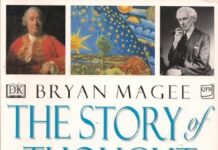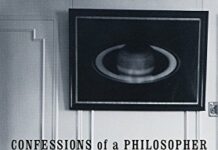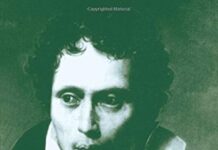
Ebook Info
- Published: 2001
- Number of pages: 432 pages
- Format: PDF
- File Size: 2.76 MB
- Authors: Bryan Magee
Description
Wagner was one of the few major composers who studied philosophy seriously. Bryan Magee places the composer’s artistic development in the context of the philosophy of his age, and gives us the first detailed and comprehensive study of the close links between Wagner and the philosophers – from the pre-Marxist socialists to Feuerbach and Schopenhauer. Magee explores the relationship between words and music, between the conscious and the unconscious mind, between art and philosophy. It tackles soberly and judiciously the Wagner whose paranoia, egocentricity and anti-semitism are repugnant, as well as the Wagner of artistic genius. The resulting text illuminates Wagner and the music-dramas in altogether new ways.
User’s Reviews
Reviews from Amazon users which were colected at the time this book was published on the website:
⭐Mention the name Richard Wagner and his famous sixteen hour opera Der Ring des Nibelungen to any Western educated individual and almost always a common and pejorative reaction is evoked: “Oh, yes, Wagner was an anti-Semite and his music helped advance Hitler and fascism in Germany. Was not his family friendly with Hitler? I do not listen to his music for those reasons.” Yes, Wagner was anti-Semitic, but his political, social, and economic views were the direct opposite of the fanatical reactionary Hitler.In Wagner and Philosophy Brian Magee addresses the prejudices and misunderstandings surrounding and impacting the public conception of the German composer. He does so smoothly, elegantly, and with scrupulous honesty. But his book is much more than exculpation. Magee understands the philosophical and socio-political values that made and shaped Wagner’s orientation to reality. Magee in elucidating all this for us shows us a man who was not a right-wing fanatic, but a left-wing radical, a man deeply upset by the greed and corruption in society, and a man who came to believe that love was the only path to human peace and happiness.Indeed, the young Wagner believed so strongly in the necessity of creating a just society that he put his life on the line in the revolutionary battles of 1848. Condemned as an anarchist he fled Germany to Switzerland thereby preventing a lengthy incarceration in a German prison.But it is Magee’s explanation of Wagner’s music and the ideas and feelings generated and expressed within it that makes this book so special. We all recognize that listening to music is an experience and not just a hearing of sounds. Wagner’s greatness lies in his use of music to express the “Idea of the world in the drama to be conditioned by the inner laws of music.” What holds the Ring story together in music is not a line by line elucidation but “something looser, independent, and unidentifiable, that is, something metaphysical and with a relation to the inwardness of life. Underneath the outwardly moving surface where the words live there is now something colossal and oceanic going on, something of an altogether different character, essentially orchestral.” Wagner is expressing in music the inner realm of humans being that Kant and Schopenhauer articulated gave him to understand.Music illuminates philosophy. Here in his music we experience the “underground currents of individual and groups pushing ineluctably forward for everyone not knowing where each are going, but going to the place they must go given what they are inside and given what is outside.” This is an explanation of human evolution not as orchestrated but as humans driven by desire, fear, anger, and love live it. The story of The Ring of the Nibelungen—which Wagner spent twenty-six years producing— is an “inexhaustible examination into the human condition.” In particular it is an exploration and indictment of the two type’s of humans who pursue power: 1) Those who so want power that they will do anything—thereby renouncing any loving relationships—to get and maintain it, and 2) those who seek it with the aim of creating a good society of just and fair laws, but who then necessarily and naturally sink into lies, deceit, and corruption. Both types of power-humans pull humanity into inevitable greed, corruption, and self-deception. Honesty, as anyone who has caught herself fiddling with the truth to get what she wants, is almost impossible to achieve in the socio-political-economic realms of humanity.Magee is an excellent writer. His prose is open and inviting, it unfolds Wagner’s life, his intellectual values, and the great achievement Wagner made in using orchestral music to elucidate the feelings of what was taking place on the stage. There are few confusing sentences here: even when he is explaining the influence Immanuel Kant’s Critique of Pure Reason had on Schopenhauer, and Schopenhauer’s own philosophy and the effect it had on Wagner, Magee’s prose is clear.If you have let contempt influence your experiencing some of the greatest music every composed, reading Magee’s book will totally change your views. It will also help you understand Kant’s philosophy and the effect it had upon Schopenhauer, and the effect Schopenhauer’s ideas had upon Wagner. It might even inspire you to experience Wagner’s music. An experience, I believe, that should not be missed.
⭐More than I needed to know, but happy I learned it all and from such a fresh writer and thinker.
⭐Was Wagner a traitor to his own early work/beliefs?There he wanted revolutionary overthrow of the existing society, having socialistic political hopes,wanting to make society new.In The Work of the Future,the revolutionary fire burned for the reform of humanity,the new world would be the best context for the operas he wished to create. However after working his way through Schopenhauer’s The World as Will and Idea, the revolutionary with a mission to save the world had fathomed the deep tragedy of the world and the nothingness of phenomena,he became a rejecter of the world. “There is no music deeper . . . and no drama deeper either. (The Ring) is enough in itself to place Wagner alongside Shakespeare, Michelangelo and Mozart.” If you don’t think Wagner is that good, you won’t like Wagner and Philosophy, Bryan Magee’s new book about him.You see those artists cited weren’t saddled with negative baggage like Wagner,anti-semite,loved by Adolf Hitler.Wagner’s presence is all over his works.Shakespeare was self-effacing, invisible.Paranoid and anti-semitic,Wagner,Magee says was just a reflection of his times.Just as The Merchant of Venice is a reflection of Shakespeare’s times.That too was the battle between spirit and word.Dostoevsky is an example of anti-semitic genius,whose works are unaffected.However the Nietzsche connection was all one way.With Nietzsche praising Wagner’s genius,being his acolyte,loving his works.Wagner wasn’t yet aware how famous Nietzsche would become as a philosopher.Nietzsche and Wagner spoke to each other about the greatness of Schopenhauer’s philosophy,the tragedy of ancient Greek drama. Wagner and Cosima had Nietzsche around the house a lot.Nietzsche evolved his Birth of Tragedy, Apollonian vs.Dionysian forces in drama,with Wagner as the Dionysiac. : ” . . . though Wagner tended to talk like this, it did not sound at all the same in the context of his time as it sounds to us . . . . That was then. This is now.” since then the Holocaust has intervened.”My position is that I don’t think the anti-semitism gets into the works in any significant way,” explains Magee. “The fact is that anti-semitism was very widespread in European culture, with the result that an enormous number of very famous writers and artists were anti-semites. But in most cases it doesn’t significantly affect their work and with Wagner I think it is demonstrably the case.”His significant movement was not from left to right but from politics to metaphysics.The socialist-anarchism of the young Wagner got into the libretto of The Ring under the influence of Feurbach(the left wing philosopher),anti-authority.’The music at its best is of an extraordinary beauty,unforgettably haunting,spellbinding.’ The work is essentially musico-dramatic,where the music rises above the libretto and dramatises the story,vocalizes the inexpressible and the repressed.His work is imbued with his presence,which due to his paranoid personality,made him believe the Jews dominant in the culture of his day,were in a conspiracy to help one another by doing down non-Jews.The top dogs in Paris in opera when he lived there were Jews who were inferior composers to himself. He was starving,and called Meyerbeer his’master’ at his lowest ebb.Magee gives a good account of what the operas are about.The changes in his operas reflect the changes in his outlook from politics to philosophy,from society to metaphysics.Wagner’s politics had little expression in his operas. Schopenhauerian themes of renunciation and redemption predominate from the earliest of the mature works (Der Fliegende Hollander, Tannhauser and Lohengrin.)The Ring has a division between the Rheingold,which shows a world of social and political actuality,and the later sections of The Ring,which although they adopt the same librettos written while,driven by injustice he saw hope in the future,he created after the influence of reading Schopenhauer,music which undergoes total transformation, when he writes from his unconscious instincts.Despite some exculpatory pleading on Magee’s part I am inclined to give his argument the benefit of the doubt.He elucidates discrepancies in the opera by showing over how long a period(26 years) The Ring was written in,how he wrote the end of Siegfried’s story without having told the story itself,which he developed, then how the central character moved from being Siegrfried to Wotan,and so on. In his earlier operas he had emphasised expression of the will,in his later operas its about withdrawal,self-abnegation,redemption.Magee says he utilises Christian imagery and themes, without believing in Christianity,just as he had written about the existence of gods without believing in them.Of course his assumption of Christian themes put Nietzsche off of him.Also his discussing confidential information about Nietzsche with his doctor,without Nietzsche’s consent.Hence the later lambasting.What Magee brings to the appreciation of Wagner’s operas is good will,he brings a great fund of enthusiastic joy,he brings a desire to clear away the debris of prejudice,he brings explicatory zeal.the active cooperation of his readers to understand the enormous intellectual power and creativity of a genius.Wagner’s operas are a presentational symbol of the way things are in the noumenal realm. As Schopenhauer says true music is a direct expression of the metaphysical will. Magee’s love of philosophy is surpassed only by his love of music and drama. Most writers on Wagner are specialists in music not philosophy,often missing the importance of Schopenhauer’s philosophy to Wagner’s music.So Magee has ably introduced his two greatest loves to each other.He sees the works confront the totality of human experience,not aspirational like Bach and Beethoven,but cognitive,truth-telling, telling it like it is,down to emotions we disown.The warp and weft of what is being dramatically expressed is the use of the leitmotif system in his musical fabric,to comment, recall,foretell,contrast,expose, reminisce,the same leitmotif can be used for different characters in a positive or negative way.This often conveys insights about the psychology of power.Endlessly subtle metamorphoses become inwardized,psychologised,transformed into emotion, transubstantiated into experience.They combine or allude to one another perpetually.A medium of dramatic expression has been forged beyond the power of words,a means of articulating ideas,more precise, more subtle and sophisticated than words.Forget Hitler,forget Nietzsche,be illuminated by Magee.Go back to the works.
⭐This is a book that provides extremely profound insight into the links between Wagner and philosophy, and it explains why the operas from this composer contain a very important metaphysical component.The way most common prejudices and misconceptions about Wagner are analyzed and mostly dispelled is in my view exemplary.
⭐Magee makes Wagner comes alive for me, like no other author I have read on this subject. Good writers,like him and Owen Lee want people to learn,they are born teachers.Wagners life as a revolutionary,reminded me of what I did as a young man in the 1960’s and 1970’s. We were going to change the World,like Wagner.I eventually came to the conclusion, it is better to change yourself first.But I have never really given up my revolutionary Zeal.You simply become more sophisicated. One only has to look at what the Green movement has achieved. This is in reply to Magees view that the older Wagner went through change,he gave up politics and found Schopenhauer.Magee states he went through a life changing experience later in life.Change always comes or you stagnate.Hegel-perpetual change,never ceasing,came like a bomb shell to the Germans.However,it was Feuerbach philosophy that influenced Wagner.The idea that Man creates God,or Gods in his own image,and that instead of loving God,love each other,seemed vaguely familiar to me. Religion Feuerbach thought, could show us our own deepest wisdom. Karl Mark thought these thinkers were a bunch of wimps and created a way of thought,that at the time was seen not to work.It never has.In 1850, Wagner began his Ring Libretto under the influence of Feuerbach. The poetry was written in Old German.He began with Siegfrieds Tod,which turned into Gotterdammerung,Siegfried ,Die Walkure and Rheingold. In otherwords, the libretto was written backwards.The music forwards. The fall of the old order and start of the new,via love.Wagner’s major influences were Myth,Germanic,Nordic and Icelantic and a few ideas of his own to join it all together.This did cause him problems,for as Joseph Campbell points out,myth has its own hidden meaning. Donington stated that “Wagner thought myth was timeless”. Campbell does say “the metaphors surrounding myth must change, otherwise the old metaphor simply has no meaning.Its Values are seen as old fashioned”.Thus,modern staging of the Ring and his other works are necessary. In 1854 while in Switzerland, and having written the music to Act 3, Die Walkure, Wagner came across Schopenhauer, who was a Atheist. The world is full of suffering caused by will. We should ignore it. Then this philosopher came across Buddhism and Hinduism, and thought they think like me. Man should be like a mystic and ignore life and have their experience. Wagner now had found his man,they were made for each other.But Wagner had a a very determined will.He lived out the worst of himself and showed the best of himself in the operas.Wagner could not rewrite his operas to fit in with Schopenhauer’s thinking. He could see this philosophy in his creation,Wotan. Wotan was really Wagner,Siegfried his young revolutionary self.Just as in Act 2,Die Walkure,the showdown between Fricka and Wotan,was really Minna,his wife and Wagner.The music of Act 1,Die Walkure,was written when he was having an affair with Mathilde Wesendonck. He rewrote the ending to Gotterdammerung, with a Schopenhauerian last Brunnhilde aria,a farewell to life and the entry into timeless Nirvana. For by now he now believed in reincarnation and Buddhism,gained from Schopenhauer.He told Lizst about the Ring cycle”its all a riddle to me”.So he cut out Schopenhauers aria out and replaced it with a musical theme from Sieglinde thanking Brunnhilde,for saving her in Act 3,Die Walkure. What does it all mean.? Wagner did not really grasp Indian philosophy,or if he did,he tried to change it for his operatic purposes. So Brunnhilde has reached Nirvana. But Alberich still remains,no one seems to mention him. But really, the Ring operas are about Alberichs ring. The muddle is this,does Wagner mean,we reach a new age,but that is Feuerbachian,or it is a change to Individual or collective Buddhist consciousness,and Alberich left standing,warning us, we could slip back into old thinking and the whole cycle starts again,a kind of Karma.Wagner stopped writing music at the end of Act 2 Siegfried.Then while having an affair with Mathilde Wesendonck,whose husband had provided an house for Wagner, took up writing the Libretto for Tristan und Isolde,which is pure Schopenhauer. The great Love duet is about the night-the inner world,the day,life. The problem is they cannot go to Nirvana together, or meet there as in the Liebestod.Nor should you be having sex, if you want to reach that state of Nirvana. Joseph Campbell in the DVD,the Power of Myths,thinks it is a state you can enter,now,not after death.Most Western Philosophers do not understand it.They are too rational. For example,if I state that we are within the One,this isness,that is,that which is that,these experience cannot be put into words. You might think that is rubbish.Magee to give him his due does understand the basics of Indian philosophy.Tristan and Isolde, transformed Music and was the beginning of Modern classical music as we know it. Then Wagner thought he would write a comedy,the Meistersingers of Nurnberg. Only five hours long the opera has many layers of meaning,some of them Schopenhauerian.At this time Wagner met Nietzsche,the philosopher,whom he could relate to,and who understood his ideas. However,Wagner influenced Wagner more then Nietzsche influenced him.After a period of time Nietzche left and became angry with Richard. After this, back to the Ring. The music has changed mainly because of Tristan und Isolde. Then Parsival,which should have been the Victors,a Buddhist opera. He used a woman in it.(See Wagner and Buddhism,Urs App) Instead she became Kundry. Wagner could not write music to portray Nirvana.That was his excuse anyway. Richard enjoyed Sex, as The Ring and Tristan shows. Tristan,Act two,is the sex act put to music. So under the influence of Cosima, Wagner then wrote a Buddhist,Christian opera,Parsival.This is a opera about a denial of sex. Richard was many things but not a Christian.Wagners excuse was it was only symbols that the people would understand,but it had a lot of Buddhist ideas.Magee’s book attacks the post deconstructionists,who state that Hitler was influenced by Wagner, because both were anti-semites. Wagner was dead before Hitler was born.Hitler gained his views on Jews in the streets of Vienna,and blamed Jews,because of the so called stab in the back,that caused Germany to lose the First world war. Also,the excuse that just because some of the characters are not refered to as Jewish,it does not mean Beckmesser and Mime are not. The audience knew they were. Beckmesser,was really Hanslick,a critic Wagner disliked. Mime,Wagner thought was him.Its all wooly thinking,giving academic studies a bad name.History, should be seen from the stand point of the era in which the people lived. Not through the prism of today,where we know what the Nazi’s and Hitler did.There are people who think liking Wagner is akin to being a Holocast denyer,or a facist. These people believe the untruths that have become truth,written by those who do not know Wagner,or do not really understand his work. Artists can be difficult,but can produce beautiful work.For example, Van Gogh,Gauguin,Picasso etc. This is a great Book, very inspirational. Magees book is how philosophy should be written.He even brings his life into it to illustrate facts about Wagners life.But there was more to Wagner’s Operas then what Magee mentions,but as he states,it is about philosophy.Magee brings Wagner truely alive on the pages of his book.App,U. Richard Wagner and Buddhism 2011. University Media.Campbell,J. The power of myth-DVD.1988.Donington, R. Wagners Ring and his symbols 1976. Faber Paperbacks.Lee,O. Wagner and the wonder of Art. An introduction to Die Meistersingers.2007. University of Toronto Press.
⭐I have been a keen Wagnerite for many years but had never gone beyond listening to and attending performances of the operas. This study of the philosophy and motivation behind the works has greatly enhanced my perception and appreciation of these monumental masterpieces.Highly recommended to anyone who wants to go “behind the music”
⭐This is one of two books that has enabled me to achieve dramatic comprehension alongside my love of the music of the Ring, the other being
⭐Wagner’s “Ring” and Its Symbols: The Music and the Myth
⭐. This book is not intended to be an in-depth philospohical text. Rather, it is intended to help lovers of Wagner’s music to understand the philosophical background to the creative process of arguably the most literate, and certainly the most philosophically literate, of compoesrs. Magee argues, with good reason, that it is not possible to really understand Wagner’s dramas intellectually (even though we may respond intuitively) without some key knowledge of the development of Wagner’s philosophical outlook. No philosphical background is required. All the key ideas are presented in very well crafted, easy to comprehend summaries (no mean achievemnet in itself), alongside the biographies of the relevant thinkers.Magee creates a picture of the intellectual climate in which the composer struggled and finally flourished. We begin with the years around 1848, when revolutionary fervour began to challenge the ancien regimes across Europe in the philosophical climate of Hegel, Marx, and key to Wagner, Feuerbach, a thinker who prophesied an imminent transition to a world of Love and Peace that sounds for all the world like the idealism I grew up into in the 60’s and 70’s. Then there is the key transition in his middle age when Wagner discovers the philosophy of Arthur Schopenhauer, a pessimistic philosophy, in the technical sense, amongst the conclusions of which is that life is inherently meaningless, man and mankind are not perfectible or even redeemable and so all idealism is misplaced. Whether there are divine aspects to existence or not, they are essentially irrelevant to the human predicament, and so on. Against such a background we must create what partial meanings and attempt what partial redemption we can. These ideas are key to understanding the Ring and indeed all of Wagner’s mature operas. Without understanding this it is possible to fall into all sorts of commonly held misconceptions such as that Wagner took a political turn in later life, turning his back on common people in favour of the ruling elite, or that Parsifal marked Wagner’s conversion to Christianity, and most prevalent and specious of all that Wagner was a proto Nazi.There are other aspects to the book which are described in other reviews, but the key one is Wagner’s profound commitment to Schopenhaurian philosophy, and that lack of this insight renders any comprehension of his significance impossible, and indeed opens him up to all the controversial misrepresentations that have so characterised his place in Western Art to this day.Another aspect of this book that I would like to mention is its general wisdom concerning the development of thinking peopls in the course of their lives. How the burning ideals of youth can become lost and compromised as life goes on, and the kind of intellectual positions that we tend to fall back to in middle age if we are to rise above cynicism or hypocracy. In this respect it is a very kind and healing book for the thinking person who has passed the midpoint of their life’s journey.
⭐Bought has a Christmas present for a Wagner fan.
⭐Recommend it for those new to Wagner and also for those who thought they knew everything about him. Lots of background on the operas and compelling reading.
Keywords
Free Download Wagner and Philosophy in PDF format
Wagner and Philosophy PDF Free Download
Download Wagner and Philosophy 2001 PDF Free
Wagner and Philosophy 2001 PDF Free Download
Download Wagner and Philosophy PDF
Free Download Ebook Wagner and Philosophy





